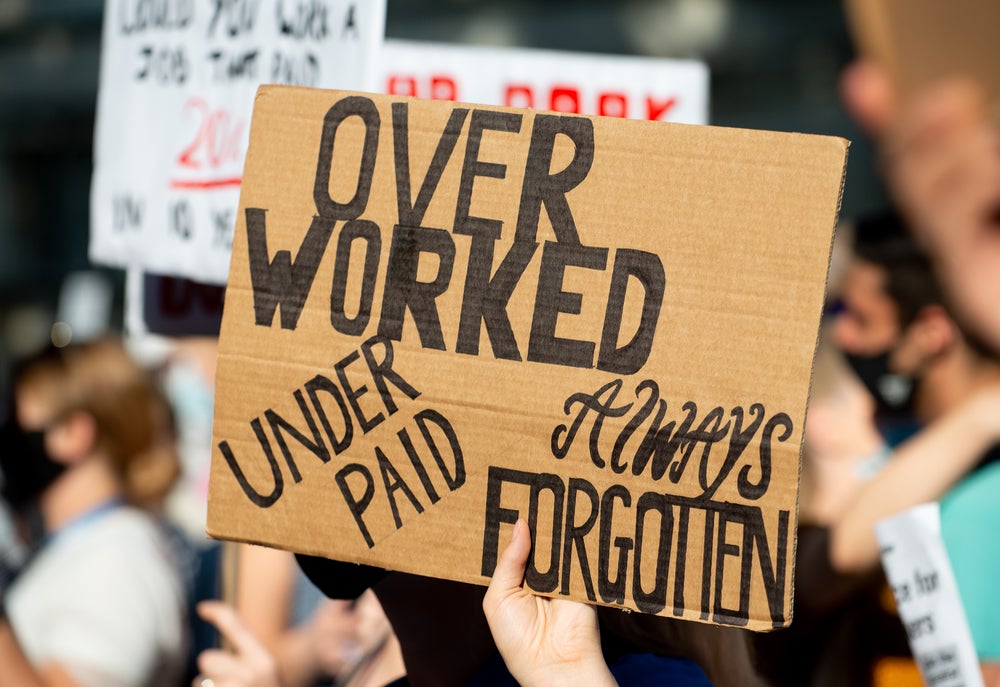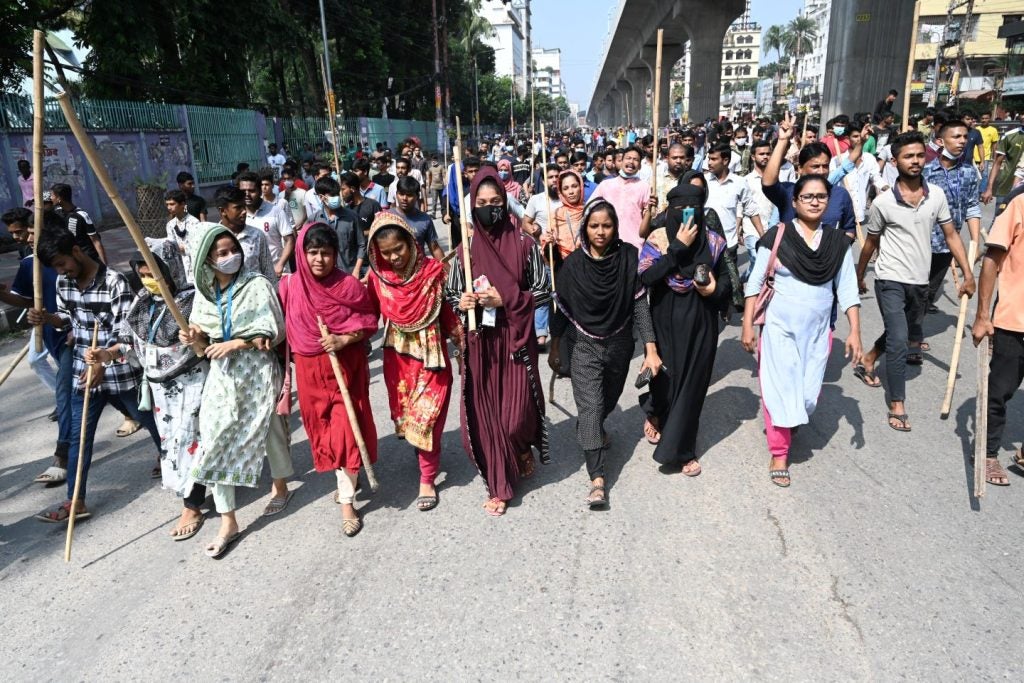
Leicester garment workers took part in what is being deemed a “successful” rally urging fashion brands to take immediate action to support the UK’s garment manufacturing industry during the cost of living crisis.
The workers claim fashion brands are increasingly demanding price reductions, even on orders of clothing that have already been produced and delivered, making it difficult for businesses to remain viable.
As a result, garment workers in Leicester say they are experiencing significant reductions in working hours and factory closures, adding further strain to already rising cost of living.
Non-profit organisation, Labour Behind the Label explains that 40% of children in Leicester are living in poverty, including those with parents who are in work.
Labour Behind the Label’s campaigns and activism lead Alena Ivanova tells Just Style: “The need for secure jobs, good conditions and a commitment to orders from Leicester were a unifying demand for all those who came out. Workers in the crowd spontaneously spoke out against the discrimination they face and the barriers to accessing services and employment due to English not being their first language.”
The workers want a commitment from brands to place orders with local suppliers that ensure decent wages and adhere to acceptable labour standards, with these provisions safeguarded within the contract price. Workers are also urging fashion brands to make a long-term commitment to sourcing from Leicester.
How well do you really know your competitors?
Access the most comprehensive Company Profiles on the market, powered by GlobalData. Save hours of research. Gain competitive edge.

Thank you!
Your download email will arrive shortly
Not ready to buy yet? Download a free sample
We are confident about the unique quality of our Company Profiles. However, we want you to make the most beneficial decision for your business, so we offer a free sample that you can download by submitting the below form
By GlobalDataIvanova points out: “UK fashion brands made big commitments to Leicester when poor working conditions during the pandemic were exposed. But what good are words if brands are now going to abandon workers in a cost of living crisis? We need brands to practise what they preach – a sustainable industry is only possible if workers have good jobs, and fair wages and fashion brands are properly regulated by the government.”
She continues: “Garment workers will not be silent – and we will make brands and decision makers listen.”
One Leicester garment worker argues: “Brands should take responsibility and commit to orders in Leicester. I know that the factories here have been running for many years. I speak to other workers who have been working in this industry for 20+ years. This is the time when workers are in need of work the most because of the cost of living being so high but instead the factories are slowly closing one by one. Thousands of workers are dependent on working in the factories in Leicester and most of us are migrant workers who have moved to the UK because of our suffering and for a better future ahead.”
The worker continues: “We want factories to stay open and busy; we want improved working conditions and better workplaces with correct rules and regulations and factories that look after workers’ rights and pay national minimum wage, holiday, and sick pay.” s
Labour Behind the Label’s UK policy lead Dominique Muller highlights the responsibility of UK fashion brands to address the challenges faced by garment workers in Leicester and how this is a repeat of the pandemic revelation in which Leicester had to force brands to take measures to improve the treatment of workers.
She states: “Once public scrutiny moved on, all that remained were vague and aspirational pledges towards a more ethical industry.”
Muller concludes: “If brands are serious about building a fairer, more sustainable industry, they must commit to it. They must adopt an ethical sourcing strategy which includes assessing the working conditions of workers in their supply chain and making improvements. In this case, it means committing to UK suppliers and supporting workers in obtaining decent work. The workers who have given brands years of their labour and millions in profits deserve nothing less.”







